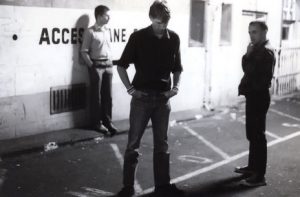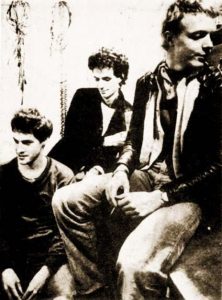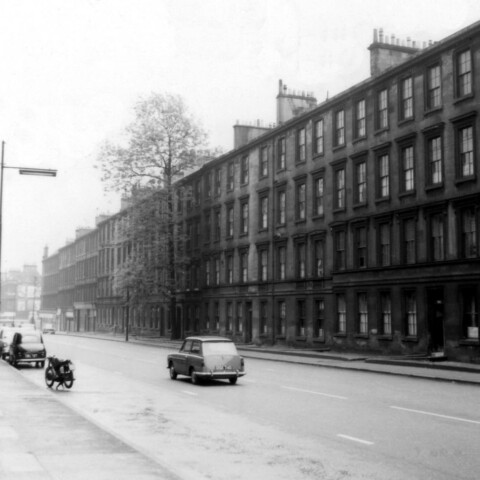The idea? Every day in May, to mark NZ Music Month and 38 years of his own rancid opining and reportage, Gary Steel will present something from his considerable behind. Personal archive, that is. In 1981 I was to be found weekly in Wellington’s Evening Post reporting on the latest Kiwi pop news in a column called, um, Counting The Beat. Here’s the first of several Counting The Beat installments.
 AUSTRALIA WILL COCK ears for Blam Blam Blam whose new 30cm EP is released there shortly. Back home the band’s single, ‘There Is No Depression In New Zealand’, is active on the charts. A first album is planned for Kiwi Christmas stockings.
AUSTRALIA WILL COCK ears for Blam Blam Blam whose new 30cm EP is released there shortly. Back home the band’s single, ‘There Is No Depression In New Zealand’, is active on the charts. A first album is planned for Kiwi Christmas stockings.
The three Blam men wish to remain New Zealand-based, unlike The Crocodiles who finally fell apart in their adopted workplace, Sydney, a few weeks ago. While the band was thinking about solo careers and the news was filtering through to home, top British rock rag NME ran an item about the imminent release of the band’s first UK product, calling The Crocs “currently New Zealand’s hottest act.”

Split is the word of the month. Doing the in thing are Auckland groups The Ainsworths, The Herco Pilots and The Regulators. Following suit are Christchurch flashboys The Solitudes. Capital bands don’t so much break up as lose members. Head man Tony Pickup leaves The Digits to explore weirder ground with a revived Smashed Executive, and Beat Rhythm Fashion’s Glenn expels himself.
One of Wellington’s more obscure outfits, Beat Rhythm Fashion (BRF), appears to have gathered quite some cult following, as its debut single, ‘Beings Rest Finally’, enters the charts. Also making a chart debut with ‘What’s Be Happen?’ is Auckland reggae outfit Herbs, though The Mockers, with its catchy ‘Trendy Lefties’, have surprisingly failed to gain that essential chart action.

A lone bright spot for Wellington youth is the opening of Club Seven, which will begin where the defunct Resort left off in providing live music for our under-age ragers. GARY STEEL
Notes: It’s odd to read names of bands I haven’t thought about since the early ’80s, and to be reminded of little nuggets like the kudos afforded The Crocodiles by the trend-oriented NME. I’m amazed that the Evening Post allowed me the indulgence of a weekly pop news column, especially given the rather obscure groups I talked about. Back then, pop culture wasn’t mainstream like it is today, and newspapers were still serious institutions. It probably helped that the editors didn’t have a clue what I was talking about.















